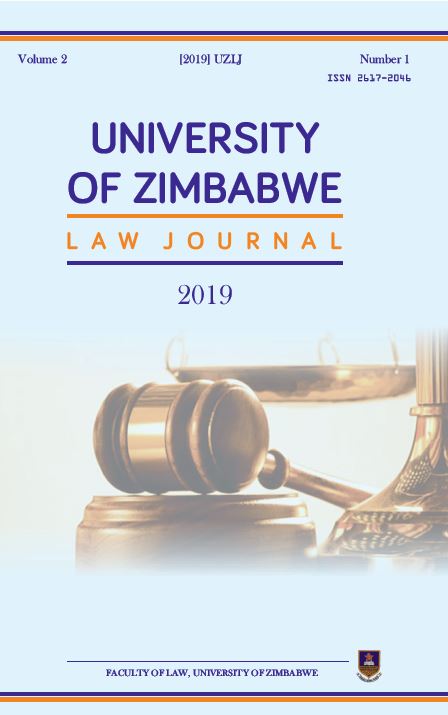PROTECTION FROM UNFAIR DISMISSAL AND THE REMEDY OF REINSTATEMENT UNDER ZIMBABWEAN LAW
Abstract
This article looks at the remedy of reinstatement for unfair and unlawful dismissal and its central significance in the realisation of employees’ right to protection from unfair dismissal. The paper argues that the right to protection from unfair dismissal lies at the cornerstone of modern Zimbabwean labour law as was shown by the massive public outcry in the wake of the Supreme Court decision of Nyamande and Anor v Zuva Petroleum (Pvt) Ltd SC 43-15, which upheld the continued application of the common law “Notice Rule” of termination on notice by the employer. The paper argues that without an effective remedy to unfair dismissal, in the form of reinstatement, the right to protection from unfair dismissal will remain a mirage. The paper makes a survey of the history of reinstatement law starting with the traditional common law position which rejected the remedy outright and the modern common law one wherein the remedy has been recognised as a competent remedy. The paper then discusses the history of the remedy in statutes protection from unfair dismissal and to fair labour standards under the Labour Act (No. 17 of 2002) and Constitution of Zimbabwe Amendment (No. 20) Act, 2013. It discusses the different approaches taken by courts and asserts that only the broad approach is consistent with the underlying principle of right to employment security recognised under the Labour Act and Constitution.

Downloads
Published
Issue
Section
License
Copyright (c) 2020 MR MUNYARADZI GWISAI

This work is licensed under a Creative Commons Attribution-NonCommercial-ShareAlike 4.0 International License.
